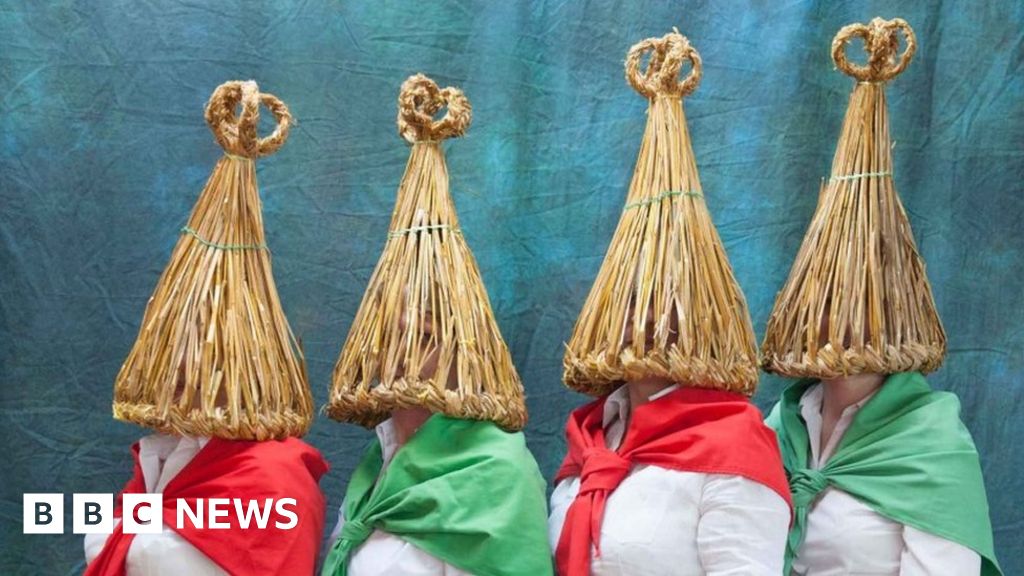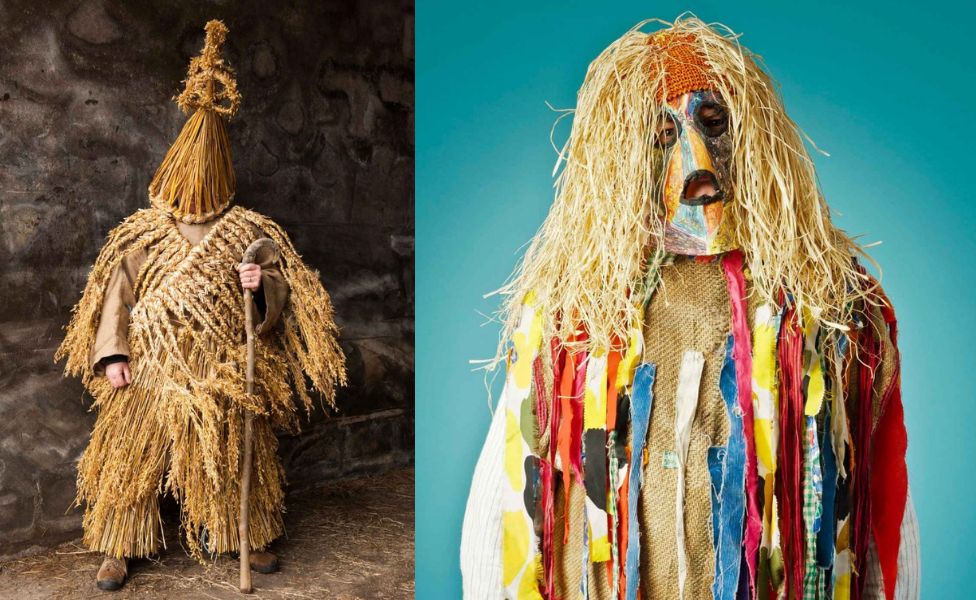 Gráinne Quinlan
Gráinne QuinlanIt is the Boxing Day hunt, but not as you know it.
26 December marks Wren Day, or Lá an Dreoilín, a centuries-old ritual that sees disguised individuals sacrifice a bird, attach it to a holly branch and travel door-to-door, asking for money.
Those that refused the wrenboys were often threatened with having the bird buried on their doorstep.
The practice is associated with mumming – an ancient, Christmas-time, house-visiting tradition involving costume, theatre and song.
Mumming has been a part of Celtic customs for thousands of years with references to masked entertainers appearing as early as the iron age.
Although popular, it was not always approved of. The Catholic Church notably condemned mumming during the early 20th Century.
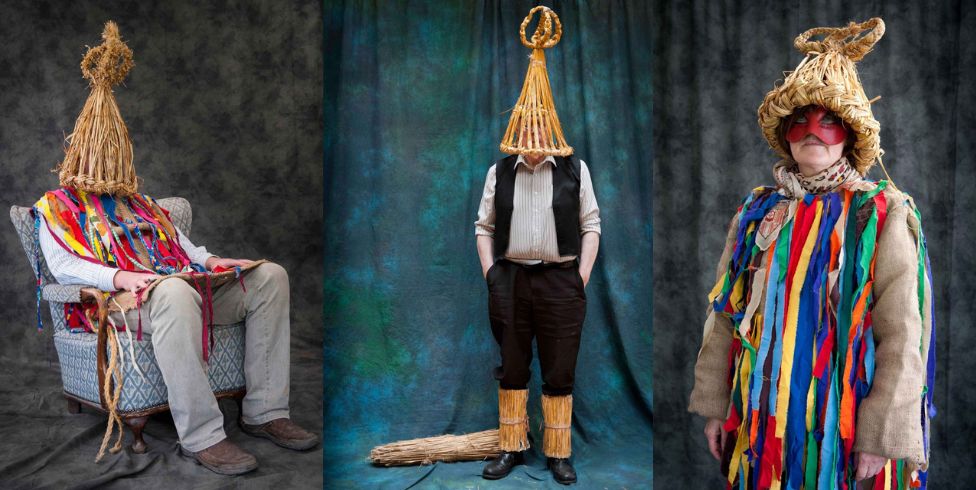
The mummers’ play plot remains constant – a combat fight between a hero and a villain – identified by their rhymes, concluding in death, resurrection and reconciliation.
“It’s a midwinter fertility rite, marked by the death of the hero and the revival, in the depths of midwinter there is hope, the sun will come back in the spring,” explained Jim Ledwith from the Mummers Foundation in County Fermanagh.
Over the course of December and into the new year, dramatically costumed mummers travel across the county, performing the play while collecting money for charity.
The dead bird on a stick
The wren is the UK’s most common breeding bird, noted for its loud voice and singing throughout winter.
It is also referred to as the king of birds in some traditional songs sung by mummers.
Originally, groups of boys would hunt for a wren which was then tied to the top of a pole or holly bush, decorated with ribbons or coloured paper, and carried house to house by the boys, who wore straw masks and old clothes.
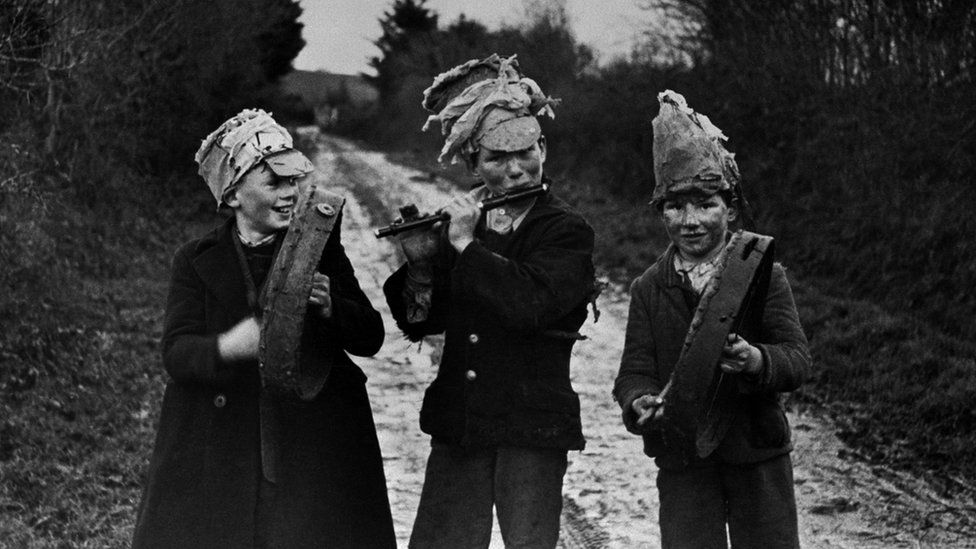
Similar traditions are celebrated across the British Isles, most notably on the Isle of Man.
“The wrenboys are a different sort of tradition, they only go out on St Stephen’s Day to perform song and music, these are one day wonders,” Jim explained.
- Door to door folklore – the mummers of Fermanagh
- Hunt the Wren: Ancient Manx tradition grows in popularity
- Crookham Mummers celebrate 50 years of plays
“They gather the money and then they have a dance.
“Everybody who had given freely got invited, it was normally held in a house or a barn and they’d be drinking until all hours.
“If there was enough sandwiches made by the women, and enough drink, it would carry on to a second night.
“It was a communal celebration of life itself by going out performing, gathering the money in, inviting the people in.
“They would drink the bit out, away off home and we’re now looking forward to January and spring will be around the corner.”
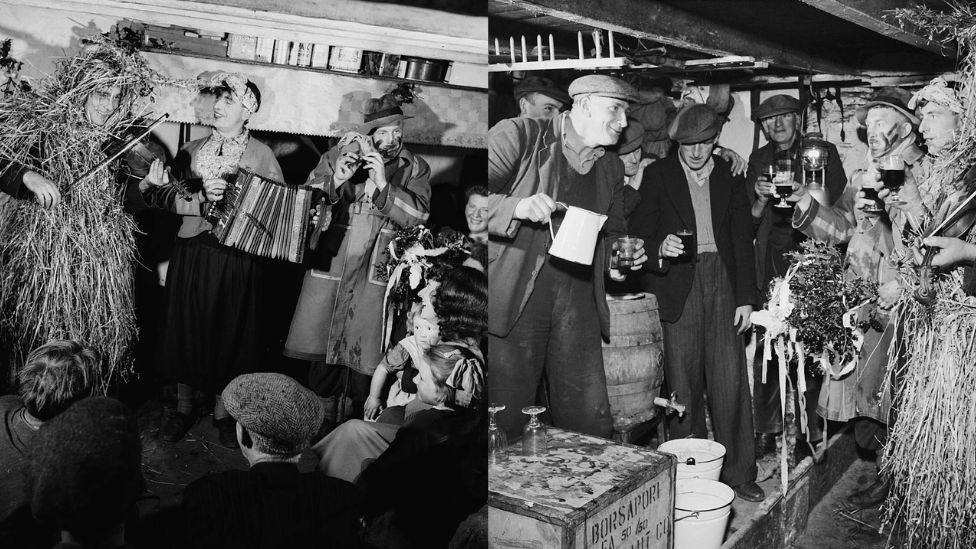
Jim said the tradition built out of necessity, firstly to pass the time, then to respond to the community’s charitable demands – obscure dress, disguised voice and gesture adding to the mystery and pantomime.
These days traditional, rural mumming is in decline with just one group, based in Ederney, performing across County Fermanagh this year.
“I organised mumming festivals in the early 90s when there was 10 or 12 groups,” Jim said.
“They all have died away, tradition has fallen a good bit and that’s where the good work of the Armagh Rhymers gives it a profile.”
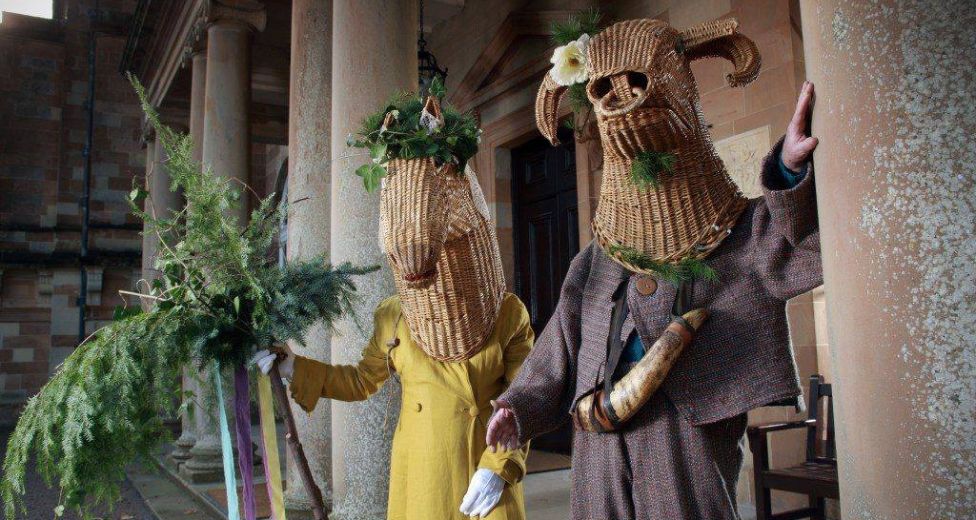
The Armagh Rhymers were formed during the 1970s and are one of Ireland’s most celebrated folk music and theatre ensembles.
Preserving the traditions of mumming and rhyming, the group is comprised of professional performers with an emphasis on education.
“A lot of our work is in schools and the faces of children when they see the masks and costumes is very special, often there is a spark of fear which quickly turns to delight,” programme manager Clare Jennings said.
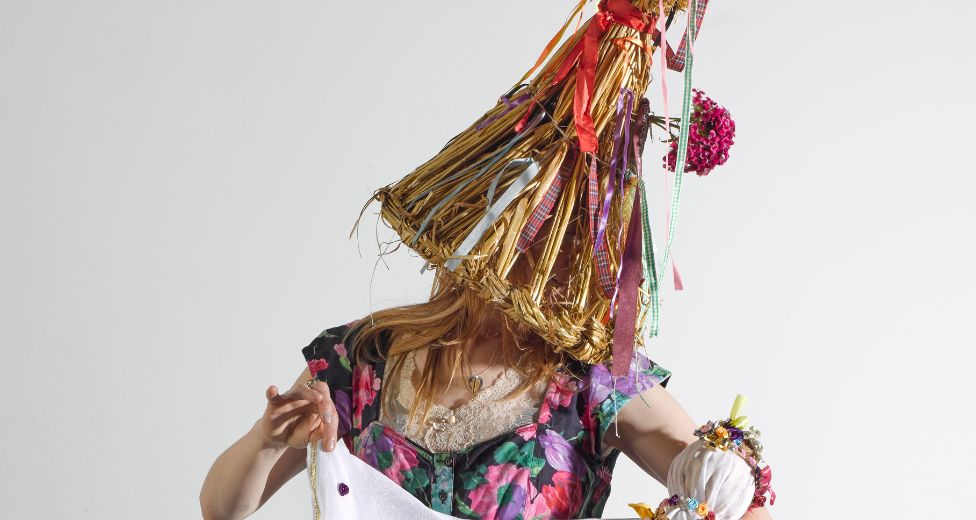
“We recently saw a thread on Twitter where people shared the scary things that stick in their memories from their childhood and The Armagh Rhymers were up there with Oliver Plunkett’s head which is high esteem indeed!”
The masks worn by The Armagh Rhymers are made from flax, willow, and straw.
“We are seeing a big renaissance in interest in the tradition with many younger people seeking out unique authentic experiences.
“Audiences are enthralled by the otherworldly and strange nature of the performances, it’s almost as if the masks and costumes give people freedom to dance, sing and get involved, even the most reluctant child joins in which is wonderful to see,” she added.
-
Keeping traditions alive in Fermanagh
-
22 September 2018
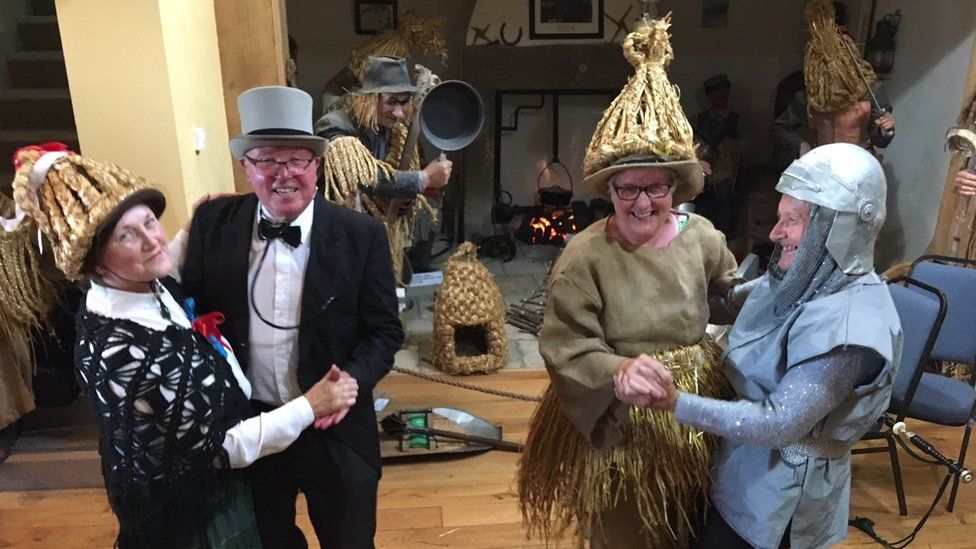
-
-
Manx tradition hunt the wren grows in popularity
-
26 December 2021
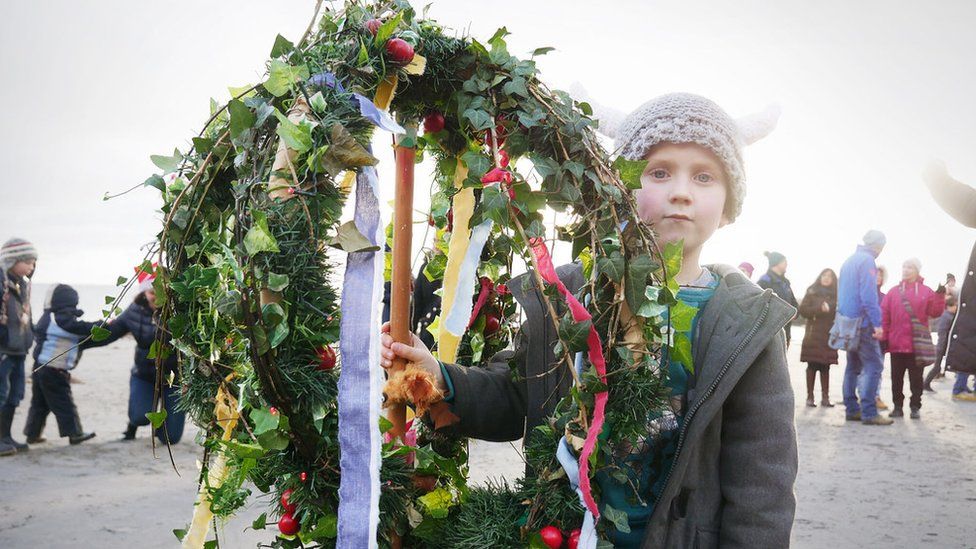
-
